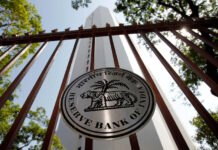Unlike the US, we don’t have adequately developed alternative dispute resolution mechanisms. In America, about 93 per cent of the cases are diverted
Recently, I held a meeting in Delhi with a US delegation, consisting of about a dozen members — lawyers, journalists, teachers, a communications specialist, a specialist on women’s issues and a Deputy Sheriff among others — a majority of whom were women. The topic of discussion was the Indian criminal law system, though other subjects were discussed, too.
About the criminal law system, I mentioned about the great delay in dispensation of justice in our country. There are about 33 million cases pending in Indian courts today, a majority of them being criminal in nature. Judges are often blamed for not deciding cases expeditiously but the public does not know about the problems of the judiciary. For instance, the Allahabad High Court (my parent High Court) had set a norm that a judge of the subordinate judiciary should not have more than 300 cases pending before him at one time. But as informed to me, there were 20,000 or more cases pending in this court alone. This makes it abundantly clear that the Indian judiciary has been staggering under immense pressure. The situation is akin to placing an elephant on a man carrying 100 pounds of weight. What happens to the man? Obviously, he will collapse and this is what has happened with the judiciary. In the Allahabad High Court, for instance, criminal appeals filed 30 years ago are coming up for hearing today!
To a question as to why there was such a huge backlog of cases (some say it will take 300 years to clear it even if no new case were filed), I cited two main reasons. First, with a huge population of 1,350 million people, it is but natural that there will be a large number of cases. Second, we have not as yet adequately developed alternative dispute resolution mechanisms (mediation, conciliation and arbitration among others) due to which the entire burden falls on the courts. In America, about 93 per cent of the cases are diverted.
Apart from that, a judge has to decide a case on the basis of evidence gathered by the police; he cannot himself investigate the crime. Criminal investigation is a science, as we learnt from the numerous stories of Sherlock Holmes. In America, when a crime is committed, the police goes to the spot and collects evidence — fingerprints, bloodstains, ashes and cloth fibres among other things — and sends them to the laboratories for study and analysis. There, DNA tests are done and fingerprints are fed into a national fingerprint network. This helps in solving the crime and apprehending the real criminal.
In India, on the other hand, most policemen are not adequately trained in scientific investigation, nor do they have the scientific equipment for this. And yet, there is pressure on them to solve the crime. The result is that the policemen often charge a person on the basis of mere suspicion and then fabricate evidence or resort to the time-tested method of using torture to get a “confession.” Not to forget, the large-scale shortcomings of the police — corruption. In most cases, not even proper investigation is done. Eye witnesses are reluctant to give evidence for fear of reprisal. All of this has made the Indian criminal law system a mockery of justice.
The delegation then discussed other topics on which there were some sharp differences between the members and me. Most of the delegation members were anti-President Trump, but I was of the view that he should be supported. I referred to my article titled, ‘Trump’s Opposition To Chinese Imperialism Overshadows His Defects’ published late last year in outlookindia.com. I pointed out that today, the greatest danger to world peace comes from Chinese imperialism, just as Hitler’s imperialism was at one time. This because like Hitler’s imperialism, Chinese imperialism, too, is expanding. Hence, since Trump is calling the Chinese bluff, we should support him on this front instead of focussing on his defects.
The next topic for discussion was about the condition of the Blacks in America. The members of the delegation, who were all White, were quite critical of the unfair treatment meted out to the African-Americans. However, I mentioned that one should not overlook the progress made by them too. At one time, even long after the decision of the US Supreme Court in Brown vs Board of Education (1954), African-Americans could not even go to restaurants, get a room in hotels or enter swimming schools or beaches. Today, the situation has changed for the better.
In Mark Twain’s famous novel, Adventures of Huckleberry Finn, when there is an explosion, Aunt Sally asks: “Was anyone hurt?” to which Huck replies “No Ma’am, only a nigger killed.” The moot point here is that there was a time in history when an African-American man was not even regarded a human being. Contrast this situation to the one now when Iowa, a state which is 95 per cent White, voted for an African-American, Barack Obama, in the primaries of a presidential election which launched him on his path to the White House. Was this even conceivable 25 years ago? It must, however, be admitted that racism still rules in some parts of America and it needs to be opposed.
Next, we discussed about gay relationships. I was of the view that though the Indian Supreme Court’s decision to decriminalise gay sex was welcome, one should not just focus on gay rights but look at human rights holistically. The more important issues in India are unemployment (the recent National Sample Survey Report said that it is at a 45-year high, with 12 million youth entering the job market every year but jobs are declining), farmers’ distress (300,000 farmers have committed suicide and the trend is continuing unabated), child malnourishment (47 per cent of the Indian children are malnourished, as mentioned by Global Hunger Index, which is one of the highest in the world), the non-existence of healthcare and quality education for the masses.
I was particularly critical of the US Supreme Court’s decision in Obergefell vs Hodges (2015), which directed all States in America to validate gay marriages. To my mind, this direction amounts to judicial legislation, which is not proper since there is a separation of powers in the Constitution. Judges should exercise restraint and not take over the functions of the legislature. Judicial legislation, to my mind, is an oxymoron.
(The writer is a former judge of Supreme Court of India)






























